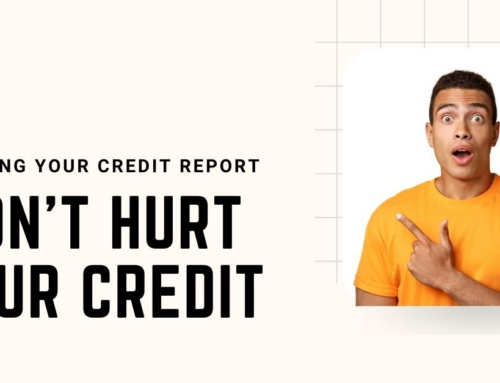Imagine millions of Americans, each feeling the weight of debt dragging them down. It’s not just an image — it’s a reality for many. Yet, amid this sea of financial burden, there is a lifeboat: debt settlement. A path to navigate back to financial stability, and the key to unlocking the shackles of crippling debt.
Debt settlement is more than a lifeline; it’s a tool for regaining control of your financial situation. It’s a strategic negotiation process where a debtor, or their representative, negotiates with creditors to accept a payment less than the total amount owed. It’s a potential beacon of hope for those grappling with the overwhelming stress of unmanageable debts.
In this blog, we delve into the world of debt settlement, offering insights into its benefits and process, and how it can lead you to a future of financial freedom. So, whether you’re in the throes of financial worry or looking for ways to help someone who is, keep reading. This knowledge could be the first step towards regaining financial stability.
What is Debt Settlement?
Debt settlement is a strategic financial solution designed to provide relief to those overwhelmed by unsecured debts. It involves a negotiation process where a debtor or their representative communicates directly with creditors to reduce and ultimately settle debts for less than the original amount owed.
The primary goal of debt settlement is simple yet powerful: to alleviate the burden of unmanageable debts. This is accomplished by convincing your creditors to accept a lump-sum payment that is lower than your current outstanding debt. Creditors often agree to these terms to avoid the risk of the debtor filing for bankruptcy, in which case they might receive nothing.
The end result? Debt settlement provides a lifeline to individuals feeling swamped by their financial obligations, enabling them to regain control of their financial future. Through this process, they can potentially erase a significant portion of their debt and take a firm step towards financial freedom.
What Kind Of Debt Can Be Settled?
Debt settlement is primarily designed to deal with unsecured debts. Unsecured debt refers to any type of debt that isn’t backed by an underlying asset. Here are some types of unsecured debt that can be settled through debt settlement:
- Credit Card Debts: This is the most common type of unsecured debt, and often the primary focus of many debt settlement programs.
- Medical Bills: Unexpected health issues can result in hefty medical bills. These can be negotiated down through a debt settlement program.
- Unsecured Personal Loans: If you have personal loans that are not backed by collateral, they can be settled through this process.
- Certain Student Loans: While federal student loans are generally not eligible for debt settlement, private student loans can sometimes be settled.
- Collections Accounts: Debts that have been sold to collection agencies are often suitable for debt settlement.
- Utility Bills: Unpaid utility bills that have gone to collections can also be negotiated.
Remember, secured debts like mortgages or auto loans typically cannot be settled through a debt settlement program because the lender can claim the underlying asset (your home or car, for example) if you default on the loan. It’s always best to consult with a financial advisor or debt relief professional to understand which of your debts can be effectively handled through debt settlement.
Understanding the Real Value of Credit
The realm of credit is often misunderstood. Many fear seeking help with their debt due to the potential impact on their credit score. They believe they are safeguarding their credit by just making minimum payments and consider their credit as their most valuable asset.
While maintaining good credit is essential, it’s crucial to understand its true purpose. Are you preserving your credit for the right reasons? Is it helping or hindering your financial journey? Some individuals strive to protect a credit status that, unfortunately, has already been marred by delinquencies and charge-offs. Others, despite being up-to-date on their payments, are unaware that a clean payment record doesn’t necessarily mean they’re in a healthy financial position or are deemed creditworthy by lenders.
The Credit Card Merry-Go-Round
The cycle of using income to pay off credit cards and then relying on these same cards for daily living can be a dangerous trap. It’s only sustainable until credit limits are hit. And at that point, many people are lured into balance transfers with attractively low, yet temporary, interest rates, propelling them further into the debt spiral.
Respected lenders, such as mortgage companies and auto loan providers, assess more than just your payment history. They scrutinize your debt-to-income ratio. Too much debt relative to income can result in loan application rejections, or if approved, exorbitant interest rates.
A Route to Debt Freedom
If you’re caught in this predicament, the best way to improve your creditworthiness is clear – reduce your debt. A legal debt resolution strategy via a trusted law firm offers a powerful route to shedding unsecured debt quickly and cost-effectively. With decreasing debt, your credit score should improve over time. Once the program is completed, you’ll be on solid ground to rebuild your credit and your life.
At its core, credit is a tool for incurring more debt. But is accumulating more debt what you need right now? Or is your aim to eliminate the existing debt causing stress in your life? Realizing that the goal is to become debt-free can be a game-changer. Once you’re free from debt, rebuilding your credit on a solid financial foundation becomes a feasible and more effective strategy.
Gershfeld Law Group Can Help You
Navigating through the world of debt can be challenging, but as we’ve discovered, options like debt settlement can provide a lifeline. This process allows you to potentially reduce the overall amount you owe, providing not just financial relief but also peace of mind. Understanding the process, knowing the types of debt that can be settled, and recognizing the actual value of credit are all crucial aspects of this journey.
It’s important to remember, everyone’s financial situation is unique, and debt settlement might not be the perfect fit for everyone. Therefore, it’s recommended to seek professional advice that’s tailored to your specific circumstances.
At Gershfeld Law Group, we’re ready to guide you through this journey and provide the expertise you need to make the best decisions for your financial future. Feel free to reach out to us if you need any assistance or advice on the path to debt freedom.
If you found this post helpful or know someone who might benefit from this information, please don’t hesitate to share it. And, of course, we always welcome your comments and questions below. Let’s work together towards a debt-free life!






